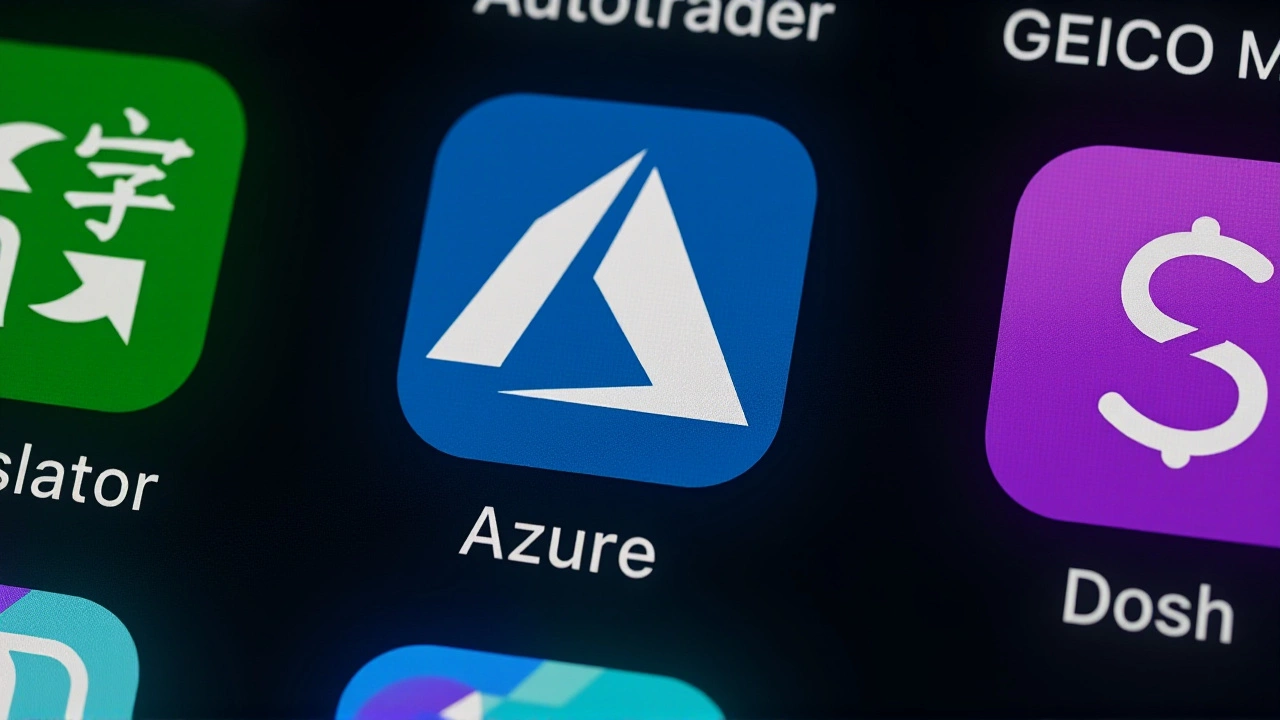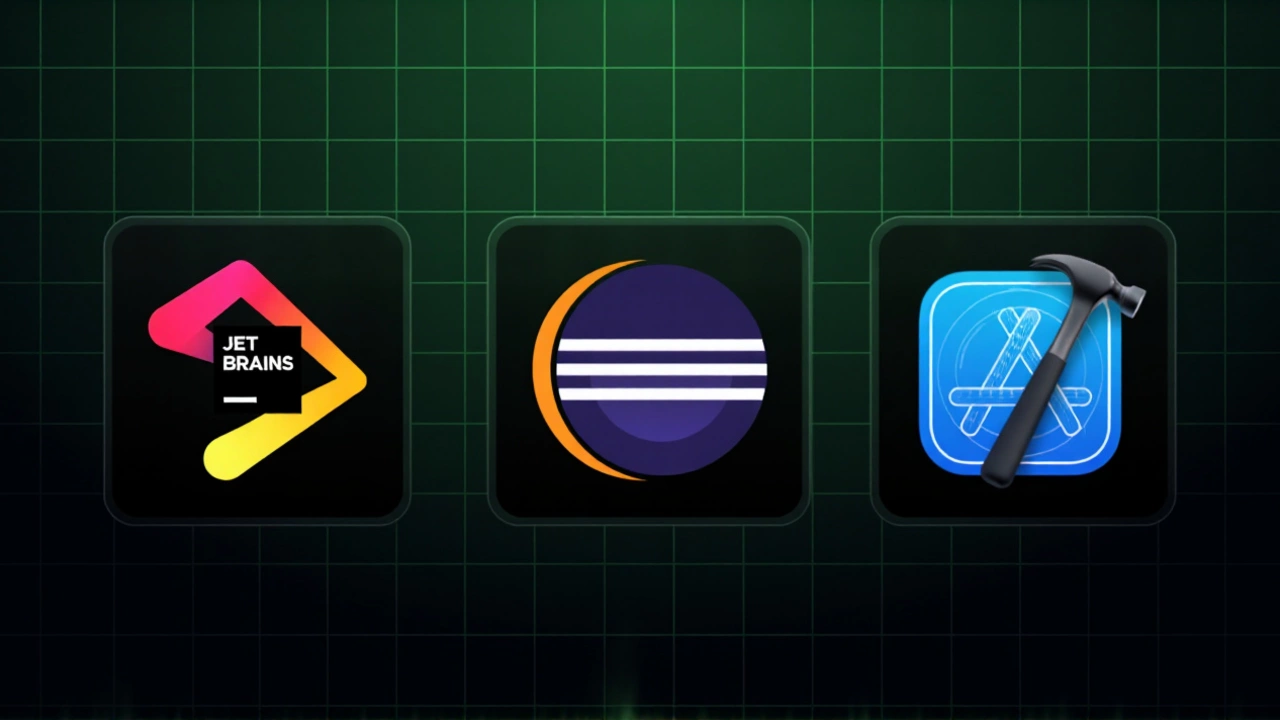On November 18, 2025, GitHub quietly rolled out a major upgrade to its AI-powered coding assistant, GitHub Copilot, expanding how developers authenticate with custom identity systems in JetBrains IDEs, Eclipse, and Xcode. The update isn’t flashy — no keynote, no press release — but for enterprise teams locked into SSO systems like Okta, Azure AD, or internal LDAP servers, it’s a game-changer. For the first time, Copilot can now connect to third-party identity providers using OAuth 2.0 and 2.1 without requiring personal access tokens or extra software. It’s like giving your IDE a secure keycard to your company’s door — not GitHub’s.
How the New OAuth Flow Works
The magic happens through Dynamic Client Registration (DCR), a standard OAuth mechanism that lets Copilot automatically register itself as a trusted client with your organization’s identity server. If the server doesn’t support DCR? No problem. Copilot falls back to a manual client-credentials workflow, where admins can pre-register static client IDs and secrets. This dual-path design is clever: it’s flexible enough for startups using Google Auth, but robust enough for banks running custom SAML pipelines.
Here’s how a developer sets it up: Open the Copilot settings in your IDE, go to the MCP tab, click "Edit Config," then enter the server details. For GitHub’s own MCP server, you type github as the Server ID, pick "HTTP/SSE" as the Type, and paste https://api.githubcopilot.com/mcp/ as the URL. Save it, then click "Auth" in the CodeLens above the mcp.json file. A pop-up opens — you sign in through your company’s login page — and that’s it. No PATs. No CLI tools. No VPN headaches.
Who’s Affected — And Who Needs to Act
This feature is live in preview for all users with a valid GitHub Copilot license who’ve updated their plugins. That includes every major JetBrains product: IntelliJ IDEA, Android Studio, WebStorm, PyCharm, and even niche tools like DataSpell and RustRover. Eclipse and Xcode users aren’t left out.
But here’s the catch: If you’re part of an organization with a Copilot Business or Copilot Enterprise plan, your IT team must first enable the "MCP servers in Copilot" policy in the admin console. Without that toggle turned on, the MCP tab won’t even appear. And while you can turn MCP on or off globally, there’s still no way to block specific servers — say, a third-party tool your team doesn’t trust. "It’s an all-or-nothing switch right now," noted one senior DevOps engineer at a Fortune 500 firm, who spoke anonymously. "We’re holding off until granular controls arrive. Right now, it’s like giving every employee a master key to the server room."
Auto Model Selection: The Silent Upgrade
Alongside OAuth, GitHub quietly launched an auto model selection feature. Instead of forcing you to pick between GPT-5, GPT-5 mini, Sonnet 4.5, or Haiku 4.5, Copilot now chooses the best model for your task — based on your subscription tier. Copilot Pro users get GPT-5 mini; Business and Enterprise subscribers get access to GPT-5 and Haiku 4.5. And here’s the perk: if you use auto mode, you get a 10% discount on the model multiplier. That means faster responses, lower costs, and less manual tuning.
"It’s not just convenience — it’s efficiency," said Dr. Lena Torres, a research lead at Stanford’s Human-Computer Interaction Lab. "When developers aren’t wrestling with model selection, they spend more time solving real problems. This is the kind of subtle, intelligent automation that makes AI feel less like a tool and more like a teammate."

Security Concerns and the Road Ahead
GitHub’s documentation admits the MCP ecosystem is still "in preview," and security teams are watching closely. The biggest fear? Autonomous agents. Once MCP is enabled, Copilot can call external tools — code analyzers, API clients, even internal databases — without asking. "It’s not just authentication," said a cybersecurity analyst at a healthcare tech firm. "It’s about trust. If Copilot can auto-call a server, what’s stopping it from accidentally sending proprietary code to a misconfigured endpoint?"
GitHub is aware. In its changelog, the company explicitly asked for feedback through dedicated channels: "GitHub Copilot for JetBrains IDEs," "GitHub Copilot for Eclipse," and "GitHub Copilot for Xcode." They’re not just collecting bugs — they’re shaping the next phase. "This is just the beginning," their statement reads. "We’re actively working on future updates to make it more intelligent — taking your task and context into account. Your feedback will directly shape what’s next."
For now, the rollout is limited to preview users. But given how tightly Copilot is woven into modern dev workflows, this update could become mandatory within months. The real question isn’t whether you’ll use it — it’s whether your organization is ready.
What’s Next?
GitHub hasn’t said when MCP support will graduate from preview to general availability in JetBrains, Eclipse, and Xcode — though it’s already GA in Visual Studio Code. Industry insiders expect a full release by Q2 2026, likely tied to the next major IDE plugin updates. Expect tighter policy controls soon: granular server allowlists, audit logs for MCP calls, and perhaps even AI-driven risk scoring for external endpoints.
Meanwhile, developers are already testing custom MCP servers for internal tools — think code linting bots that pull from private repositories or documentation crawlers that sync with Confluence. The open nature of MCP could turn Copilot into a universal bridge between AI and enterprise infrastructure. But only if security keeps pace.
Frequently Asked Questions
Do I need a GitHub Copilot license to use the new OAuth features?
Yes. The enhanced MCP OAuth functionality requires a valid GitHub Copilot license — whether Personal, Pro, Business, or Enterprise. Free-tier users won’t see the MCP tab in their IDE settings. The feature is tied to Copilot’s subscription model, not just plugin version.
Can my company block specific third-party MCP servers?
Not yet. Currently, organizations can only enable or disable all MCP servers via a global policy toggle. There’s no way to whitelist or blacklist individual servers like a custom internal tool or a public third-party service. GitHub has acknowledged this gap and confirmed granular controls are under active development for 2026 releases.
What happens if my organization’s identity provider doesn’t support Dynamic Client Registration?
Copilot automatically falls back to a client-credentials workflow. Admins can manually register a static client ID and secret with your IdP, then enter those credentials into the IDE’s MCP settings. It’s less seamless than DCR, but still secure — and it works with legacy systems like LDAP or older SAML setups that don’t support modern OAuth extensions.
Does this update affect code privacy or data residency?
GitHub states that MCP communication stays within your organization’s approved endpoints — no code leaves your network unless you configure it to. The OAuth flow only grants access to authentication, not code transmission. However, if you connect to an external MCP server (like a custom tool), you’re trusting that server’s data handling. Always audit third-party endpoints before enabling them.
How does auto model selection impact performance and cost?
Auto model selection picks the most efficient model for your task — like using Haiku 4.5 for quick comments or GPT-5 for complex refactoring. Subscribers on Pro, Pro+, Business, or Enterprise plans get a 10% discount on model multipliers when using auto mode, which lowers token costs. For teams running hundreds of AI-assisted sessions daily, that adds up to measurable savings.
Why is this feature only in preview for JetBrains and Xcode?
GitHub launched MCP support in Visual Studio Code first because of its open ecosystem and broad adoption. The JetBrains, Eclipse, and Xcode plugins require deeper integration with each IDE’s architecture, which takes more testing. Preview status allows GitHub to collect real-world feedback before locking in APIs. A full release is expected by mid-2026.
